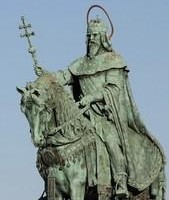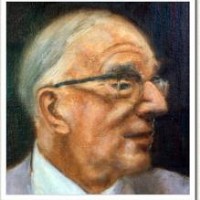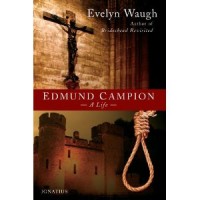Ungheria: orgoglio e identità, by Andrea Camaiora.
«C’è qualcuno che avrebbe preferito che non avessimo menzionato re Santo Stefano nel preambolo alla nostra nuova Costituzione. Ebbene, se non lo avessimo fatto avremmo negato le nostre radici, la nostra storia, in una parola la verità». È apparso convincente, determinato, carismatico il parlamentare europeo PPE József Szájer, in visita a Roma lunedì per un incontro con la stampa, al mattino presso la sede dell’ambasciata ungherese, e in serata con gli studenti della prestigigiosa John Cabot University.
Szájer, praticamente sconosciuto in Italia, non è un politico qualunque nel suo Paese. Ha presieduto la Commissione per la Redazione della Legge Fondamentale Ungherese ed è a lui che si deve il celebre e contestato preambolo che recita: «Noi, appartenenti alla nazione ungherese, all’inizio del nuovo millennio, provando senso di responsabilità per ogni nostro connazionale, proclamiamo: Siamo orgogliosi che il nostro re Santo Stefano [nella foto] abbia costruito lo Stato ungherese su un terreno solido e abbia reso il nostro paese una parte dell’Europa cristiana mille anni fa. Siamo orgogliosi dei nostri antenati che hanno combattuto per la sopravvivenza, la libertà e l’indipendenza del nostro paese. Siamo orgogliosi delle eccezionali conquiste intellettuali del popolo ungherese. Siamo orgogliosi che il nostro popolo nel corso dei secoli abbia difeso l’Europa in una serie di lotte e arricchito i valori europei comuni con il suo talento e diligenza. Riconosciamo il ruolo del cristianesimo nel preservare la nazione. Apprezziamo le varie tradizioni religiose del nostro paese. Ci impegniamo per preservare l’unità intellettuale e spirituale della nostra nazione lacerata nelle tempeste del secolo scorso. Le nazionalità che vivono con noi fanno parte della comunità ungherese politica e sono parti costitutive dello Stato».
L’europarlamentare di Fidesz (il partito di Viktor Orban) ha spiegato ai pochi giornalisti presenti in sala – tra i quali si notavano le clamorose assenze di la Repubblica, Corriere della Sera e Sky, testate tra le più ferocemente critiche nei confronti dell’attuale situazione politica ungherese – che gli ungheresi hanno assistito alle durissime critiche ricevute per la libera e sovrana scelta di dotarsi di una nuova Carta con una certa perplessità e ha spiegato il perché: nel 1222 re Andrea II d’Ungheria emanò la cosiddetta Bolla d’oro, ovvero un atto molto simile alla Magna Charta emanata in Inghilterra solo quattro anni prima, che impegnava il sovrano a rispettare certi limiti nella sua azione e che rappresenta pertanto la prima “Costituzione” dell’Europa continentale.
József Szájer ha avuto modo di ribadire che la scelta di dotarsi di una nuova Costituzione era molto sentita dagli ungheresi anche perché le istituzioni democratiche sviluppatesi man mano dal 1990 in poi, poggiavano sempre e comunque sull’ormai datato e discusso testo della Costituzione sovietica del 1949 «copiata sic et simpliciter dalla costituzione sovietica del 1936».
Szájer ha pure risposto alla giornalista di Radio Radicale Ada Pagliarulo che chiedeva le motivazioni che avevano portato a non iscrivere il rifiuto della pena di morte nella Carta del 2011 che gli ungheresi da vent’anni hanno definitivamente abolito la pena di morte aderendo anche a trattati internazionali che ne impediscono nuovamente l’adozione: «la nostra Costituzione – ha però ricordato l’europarlamentare magiaro – sancisce l’inviolabilità della persona, il primato della vita e altri principi di grande importanza».
Nel corso dell’incontro nella sede diplomatica magiara è emerso, sempre con riferimento alla tanto contestata nuova Carta, che la Commissione di Venezia del Consiglio d’Europa ha espressamente dichiarato di apprezzare «il fatto che questa nuova Costituzione stabilisce un ordine costituzionale basato sulla democrazia, lo stato di diritto e la protezione di diritti fondamentali quali principi basilari» (L’Opinione, 20 giugno 2011).
Read the complete article in La Bussola Quotidiana
Eric Voegelin: Prophet to the Modern Academy, by Robert Woods.
Eric Voegelin (1901– 1985) penned an essay entitled On Classical Studies (1973)–an essay that was shaped by the Classical west and the Christian faith and is philosophically opposed to the distortions of Enlightenment rationalism.
Reading Voegelin is akin to reading Amos or Joel. But instead of ancient Israel, it is the modern academy that is being rebuked. Here are just a few portions from his essay On Classical Studies to illustrate the significant problem that had occurred by 1973, “the fragmentation of science through specialization and the deculturation of Western society…specialized histories…institutional reduction…the life of reason; the end of ineluctable condition of personal and social order, has been destroyed.” In addition, Voegelin says, “the climate of our universities certainly is hostile to the life of reason…the fanatically accelerated destruction of the university since the Second World War…a pathological deformation of existence.”
This essay is a powerful indictment of the spirit of the age and the 1970s that had been a logical extension of the 1960s and earlier. But, all is not lost. There are always those who are in opposition to the new dark ages of the modern university. Voegelin paints a dark picture of higher education, but does not despair.
Read the complete article in The Imaginative Conservative
The Hook of Truth, by Gerard Kreijen
A review of Edmund Campion: A Life by Evelyn Waugh (Ignatius Press, 2005 [First published by Longmans, 1935])
That the undisputed master of dark humor and satire should have produced what is arguably the most compelling short biography of a saint to date is perhaps even more extraordinary than the claim that, today, both the biography and its author deserve close attention. Indeed, few means serve better to confront the hollow relativism of our age than turning to the conversion of Evelyn Waugh (1903-1966) and the life of Edmund Campion (1540-1581), the saintly subject of his 1935 book.
When Waugh was received into the Roman Catholic Church on September 29, 1930 his latest book had just been dubbed “the ultramodern novel”, so that his conversion caused sensation and bewilderment. In an article entitled, “Converted to Rome: Why It Has Happened to Me”, Waugh made it perfectly clear that his decision was not about ritual nor about submission to the view of others. The essential issue was the choice between Christianity and chaos.
Waugh had come to see Modernity as “the active negation of all that Western culture has stood for”. Civilization, he understood, “has not in itself the power of survival”. Christianity was the foundation of the West and without it the moral and aesthetic fabric of Europe would unravel. For Waugh this was a fact and the acknowledgment of this fact set him against modern society; it was his casus belli:
“The loss of faith in Christianity and the consequential lack of confidence in moral and social standards have become embodied in the ideal of a materialistic, mechanized state […] It is no longer possible […] to accept the benefits of civilization and at the same time deny the supernatural basis upon which it rests. “[1]
Thus Waugh turned “from ultramodern to ultramontane, and in doing so passed from fashion to anti-fashion”.[2] He became, as George Orwell quipped, “about as good a novelist as one can be while holding untenable opinions”.[3] In his literary attempts to represent man more fully, which for Waugh meant “only one thing, man in his relation to God”[4], he focused on the theme of the redemption of lost souls – notably, in his celebrated novel Brideshead Revisited (1945). Redemption, Waugh later explained with a reference to G.K. Chesterton, may be compared “to the fisherman’s line, which allows the fish the illusion of free play in the water and yet has him by the hook; in his own time the fisherman by a ‘twitch upon the thread’ draws the fish to land”.[5]
One gathers why Waugh wrote a life of Edmund Campion, the respected Oxford scholar who fled Elizabethan England amidst the troubles of the Reformation and who returned as a Jesuit priest to “crie alarme spiritual against the foul vice and proud ignorance, wherewith many my dear countrymen are abused”, finally to meet a martyr’s death at Tyburn.
Read complete article in The Clarion Review


